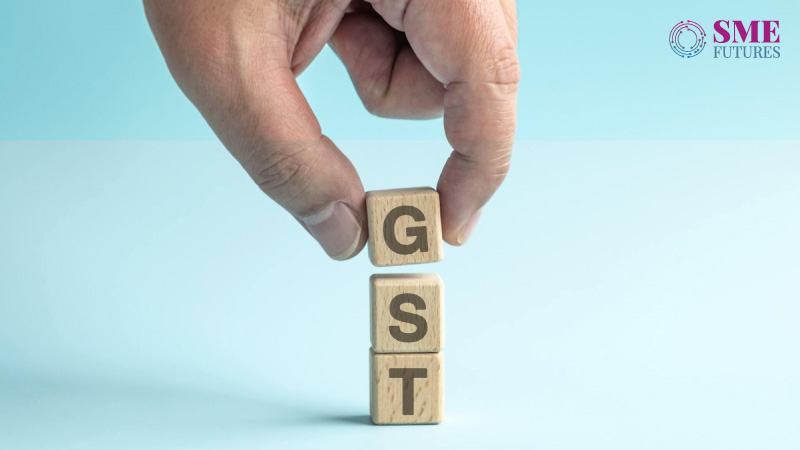As the 54th GST Council Meeting, scheduled for September 9, 2024, approaches, there is significant anticipation regarding the outcomes and decisions that could shape India’s tax landscape. The meeting, chaired by Union Finance Minister Nirmala Sitharaman and comprising state ministers, will address key issues such as tax rate rationalisation, the future of the compensation cess, and several other pressing matters that have long been debated.
Key points of discussion expected
1. Rate Rationalisation
The GST Council is expected to discuss the rationalisation of tax rates, a topic that has been a focal point for both the government and industry stakeholders. Currently, there are four major GST slabs—5%, 12%, 18%, and 28%—but there has been talk of reducing them to possibly three slabs. This change could simplify the tax structure and ease compliance burdens. However, Finance Minister Sitharaman has indicated that while the topic will be discussed, a final decision on altering the tax rates and slabs is likely to be deferred to a later meeting.
The Group of Ministers (GoM) on rate rationalisation, led by Bihar Deputy Chief Minister Samrat Chaudhary, met last week and broadly agreed to keep the existing slabs unchanged. However, they have tasked the fitment committee—a group of tax officers—with analysing the potential impact of adjusting rates on certain items and presenting their findings to the GST Council.
2. Compensation cess on luxury and sin goods
Another crucial issue that will be on the table is the discussion around the continuation of the compensation cess on luxury and sin goods. The compensation cess, initially introduced to offset revenue losses for states following the implementation of GST, expired in June 2022. However, it was extended until March 2026 to repay the Rs 2.69 lakh crore borrowed by the Centre during the COVID-19 pandemic to compensate states for GST revenue shortfalls.
The Council will have to decide on the future of the compensation cess—whether to continue it in its current form, rename it, or adjust its distribution among states once the loans are fully repaid by November 2025, four months ahead of the scheduled March 2026. Karnataka has already raised concerns regarding the continuation of the compensation cess levy and the repayment of loans.
3. Operationalisation of the GST appellate tribunal mechanism
The formation of GST Appellate Tribunals is seen as a significant step toward streamlining dispute resolution under GST. However, the actual operationalisation of these tribunals has been delayed, causing a backlog of appeals from taxpayers. Industry stakeholders are looking to the GST Council for a swift resolution to expedite the operationalisation process and reduce the burden of unresolved disputes.
4. Taxation scheme for tobacco and tobacco products
Tax evasion concerns in the tobacco and related industries have prompted the GST Council to consider a capacity-based taxation approach. The Council may discuss a proposal to tax these products based on their maximum retail prices and shift the tax burden to the manufacturing stage to curb evasion, particularly at the retail level. The Council could also look into restricting export refunds for these items.
5. GST on transactions between foreign branch offices
Recent controversies involving GST notices issued to companies like Infosys and foreign airlines concerning GST on the import of services between foreign branch offices have highlighted the need for clarification on this issue. Industry players hope the government will provide clear guidelines to prevent future disputes and alleviate business concerns.
6. Discontinuation of the compensation cess mechanism
The discontinuation of the compensation cess mechanism, which is currently levied over and above the GST on products in the 28% slab (such as aerated beverages, cigarettes, and motor vehicles), is another agenda item. The Council may explore alternatives that balance the fiscal needs of states with a unified tax regime. If the compensation cess is discontinued, a review of rates on these “sin goods” may also be warranted.
7. Online gaming taxation
The imposition of a 28% GST on online gaming activities has caused a stir within the industry, raising concerns about its impact on growth and profitability. While the government remains firm on its stance, stakeholders expect further discussions and legal consultations to address their concerns.
Industry expectations
Commenting on the expectations from the 54th GST Council Meeting, Siddharth Surana, Director at RSM India, emphasised the importance of clarity and reform in several areas. “While rate rationalisation discussions may not yield immediate decisions, the Council’s deliberations could provide a clearer direction for future changes. The focus on operationalising the GST Appellate Tribunals and revisiting the compensation cess mechanism are crucial areas that need urgent attention,” Surana noted.
As India awaits the outcomes of the 54th GST Council Meeting, it is clear that any decisions or directions taken will have far-reaching implications for businesses, state governments, and the broader economy. With a host of critical issues on the agenda, stakeholders are hopeful that the Council’s deliberations will lead to meaningful reforms and a more streamlined tax regime in the country.











